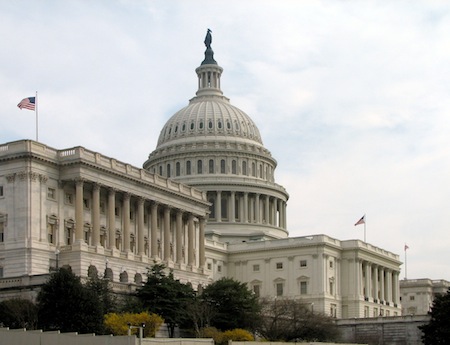Revived Bill Would Block ISP Rate Regs
The smarter way to stay on top of the multichannel video marketplace. Sign up below.
You are now subscribed
Your newsletter sign-up was successful

The House Communications Subcommittee will try to revive an effort through a new bill, H.R. 2666, the No Rate Regulation of Broadband Internet Access Act, that would prevent the FCC from using its new Open Internet rules to impose rate regulations on ISPs.
That is one of four bills the subcommittee will consider at a just-announced Jan. 12 hearing to kick off the new year. Another would be a boon to smaller cable operators, making their FCC waiver of enhanced disclosure rules under new net regs permanent.
A similar provision was initially targeted to ride the omnibus spending bill into law, but did not make it as a rider on the final bill that passed at the 11th hour last month.
The bill is essentially only one paragraph, as follows: "Notwithstanding any other provision of law, the Federal Communications Commission may not regulate the rates charged for broadband Internet access service."
Reviving the bill is sponsor Adam Kinzinger (R-Ill.). "The FCC’s Open Internet Order reclassified broadband under Title II, giving the FCC the ability to regulate rates in two distinct ways: tariffing and through declarations of what are “reasonable” rates," Republican subcommittee leadership said in announcing the legislative hearing.
And while they conceded FCC chairman Tom Wheeler has assured them that is not his plan for the Open Internet order, they argue he could still regulate rates through the FCC's enforcement authority. Republicans on the subcommittee are already not particularly pleased with the way the FCC has asserted its enforcement authority in other areas.
The bill would make sure that the FCC couldn’t' regulate broadband rates--as it does some cable rates--by enshrining the prohibition in statute.
The smarter way to stay on top of the multichannel video marketplace. Sign up below.
Also on the docket for the meeting are the Small Business Broadband Deployment Act, from Subcommittee Chairman Greg Walden, which would make permanent the FCC's waiver of enhanced Open Internet disclosure rules for small businesses, and define a small business as one with fewer than 1,500 employees and 500,000 subs or fewer (currently the FCC cut-off is 100,000 or fewer).
The FCC recently extended the waiver for a year while it nails down what those triggers should be and whether it should make the waiver permanent. Walden wants to press the issue after Repbulicans were not pleased with what they say as the FCC punting a decision.
In addition, the Subcommittee will consider a bill extending the Truth in Caller ID act to texting and the Amateur Radio Parity Act, which would require the FCC to adopt regs protecting amateur radio equipment similar to existing regs on other communications equipment.
Contributing editor John Eggerton has been an editor and/or writer on media regulation, legislation and policy for over four decades, including covering the FCC, FTC, Congress, the major media trade associations, and the federal courts. In addition to Multichannel News and Broadcasting + Cable, his work has appeared in Radio World, TV Technology, TV Fax, This Week in Consumer Electronics, Variety and the Encyclopedia Britannica.

